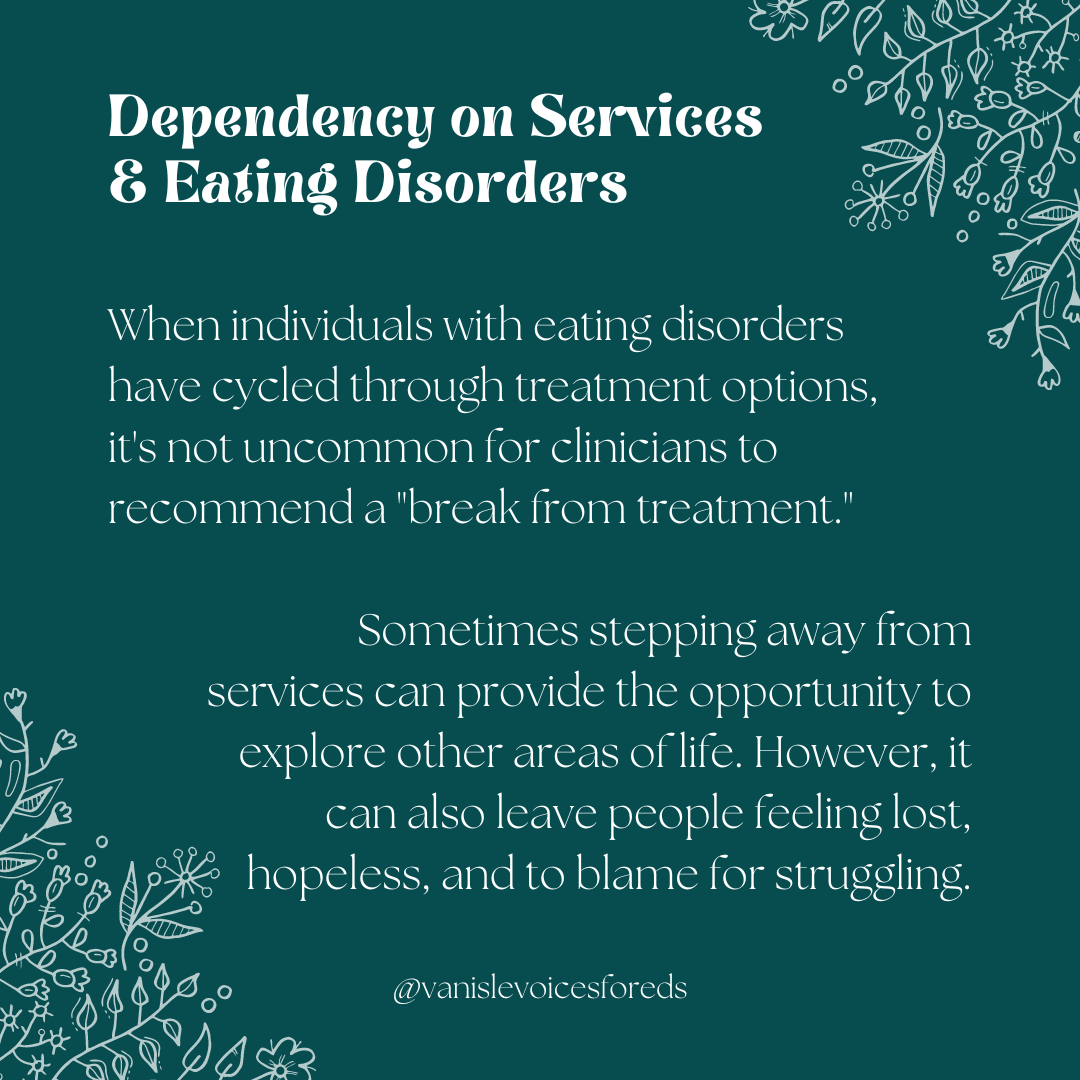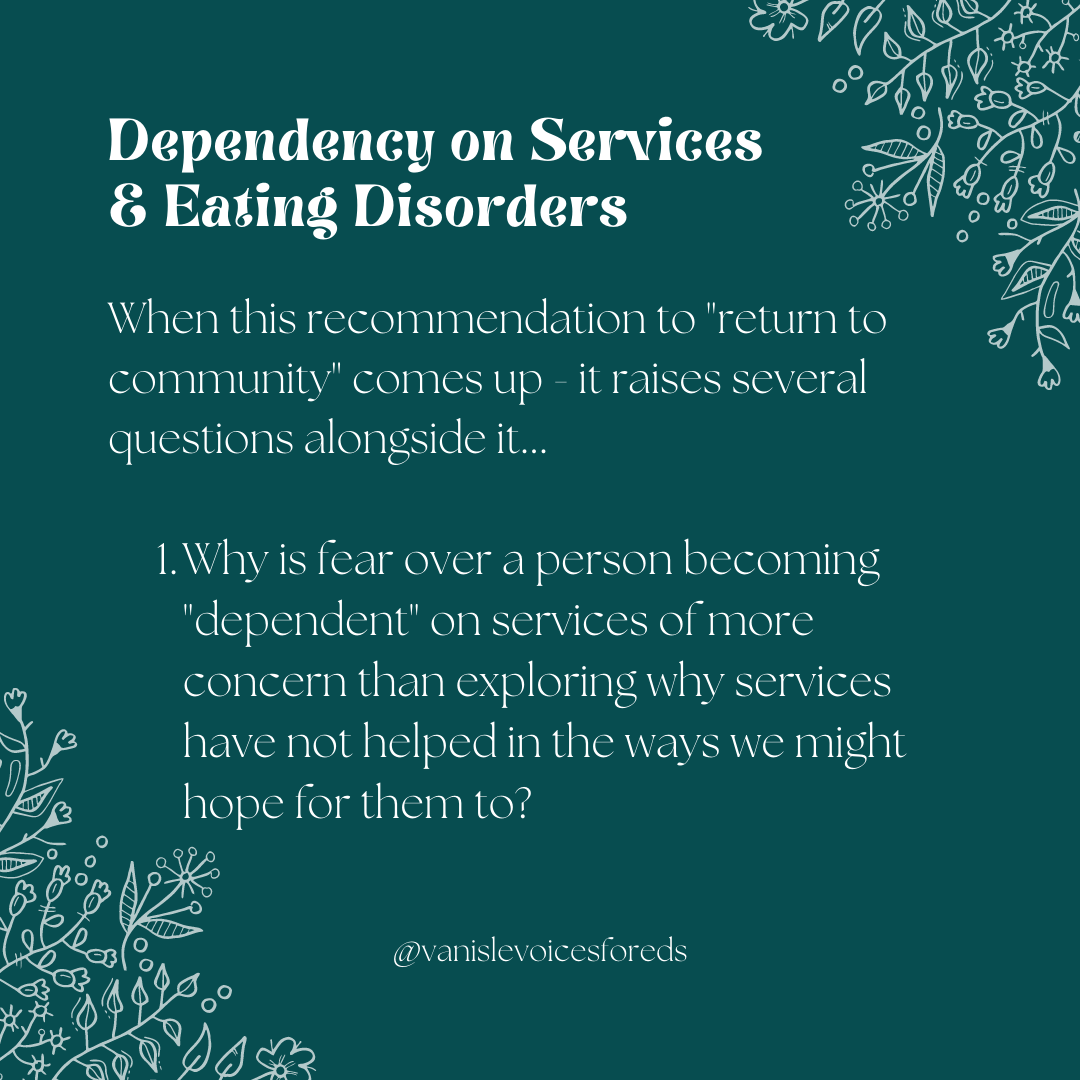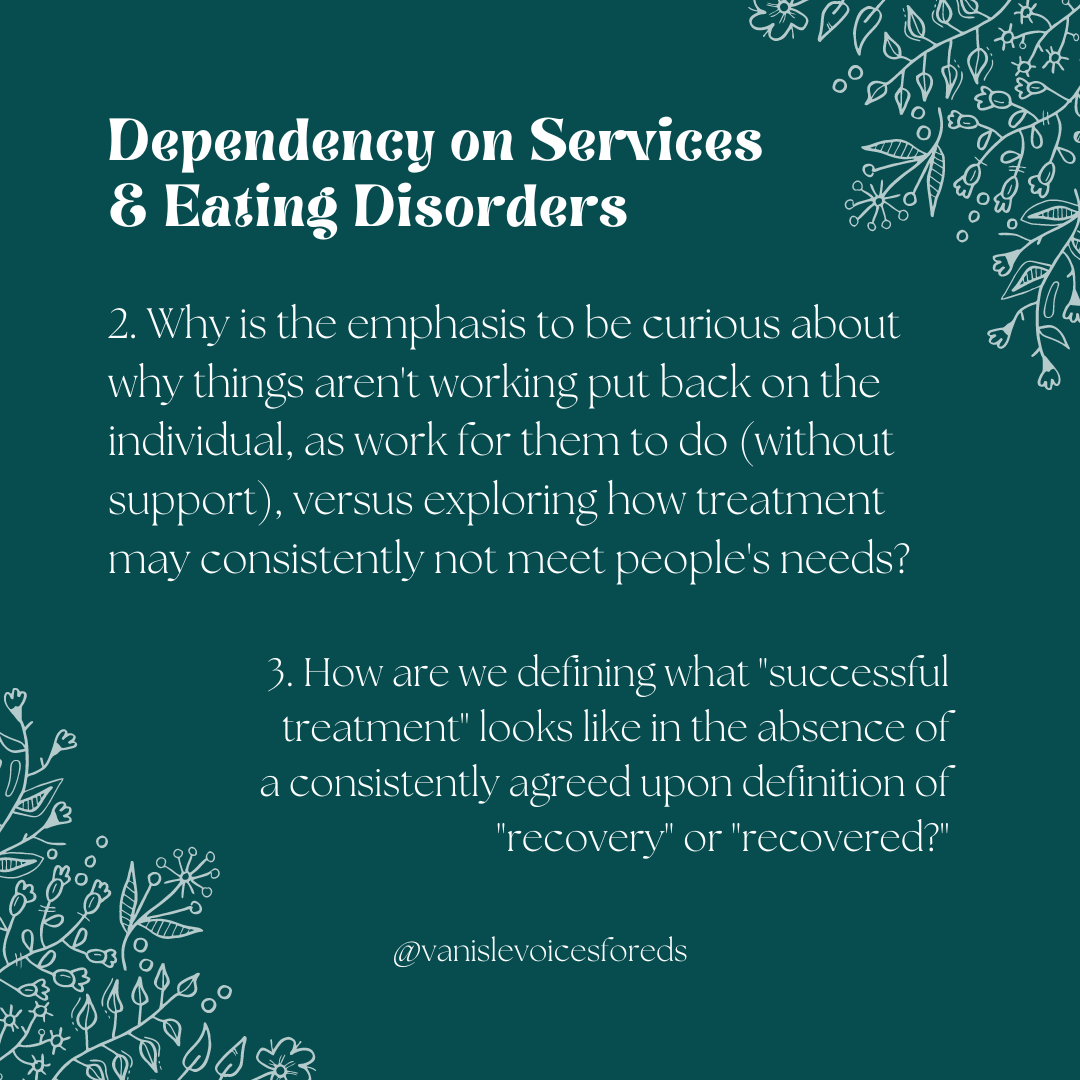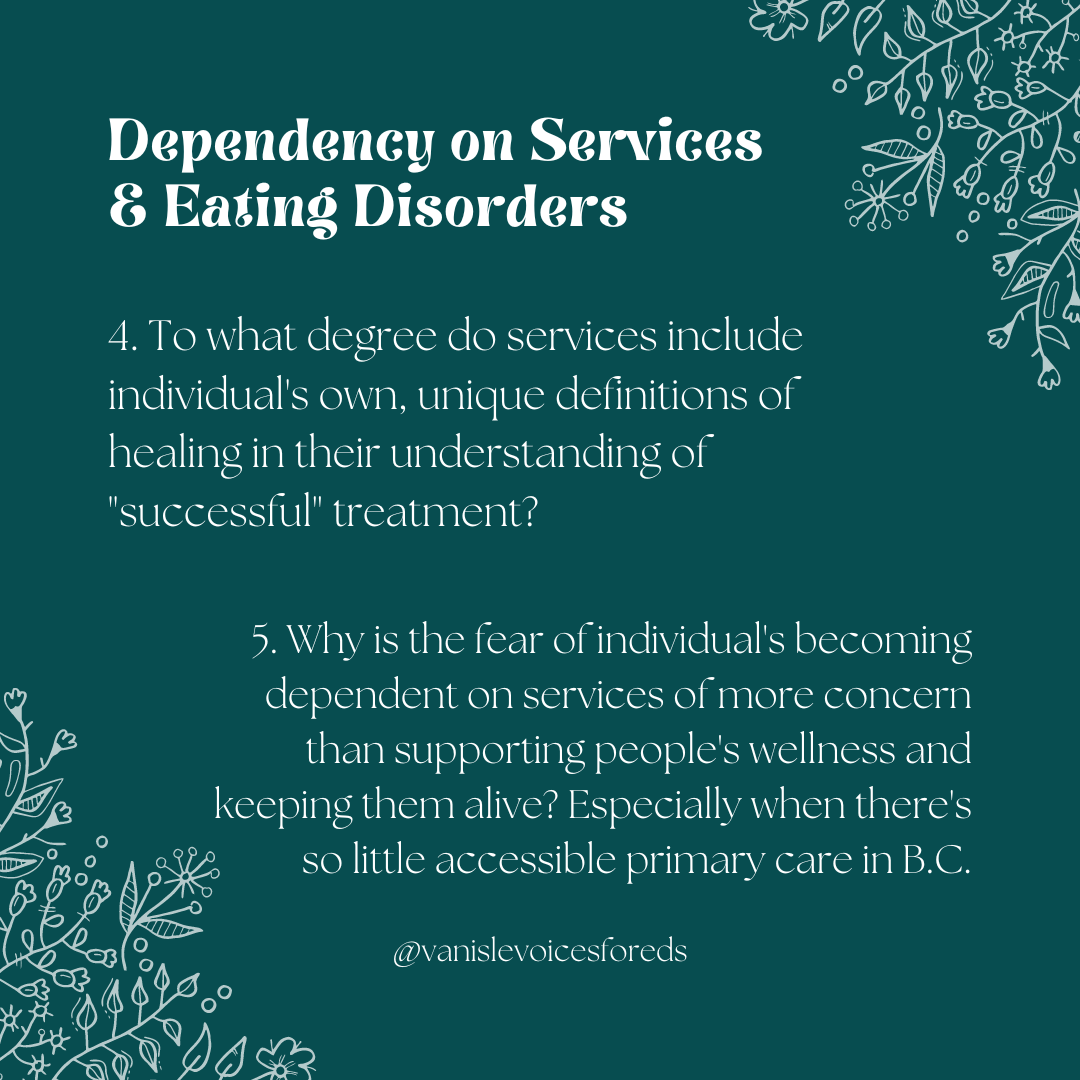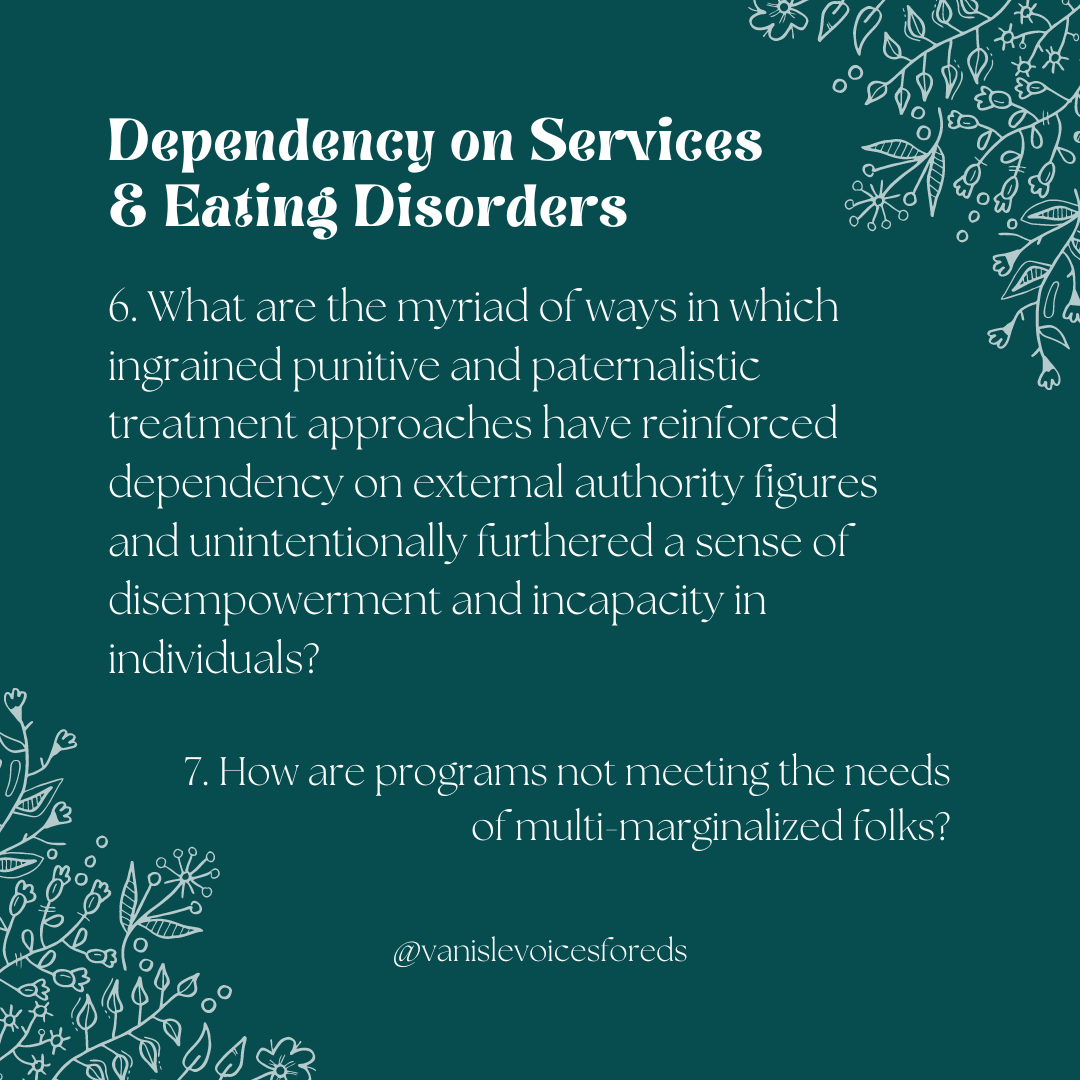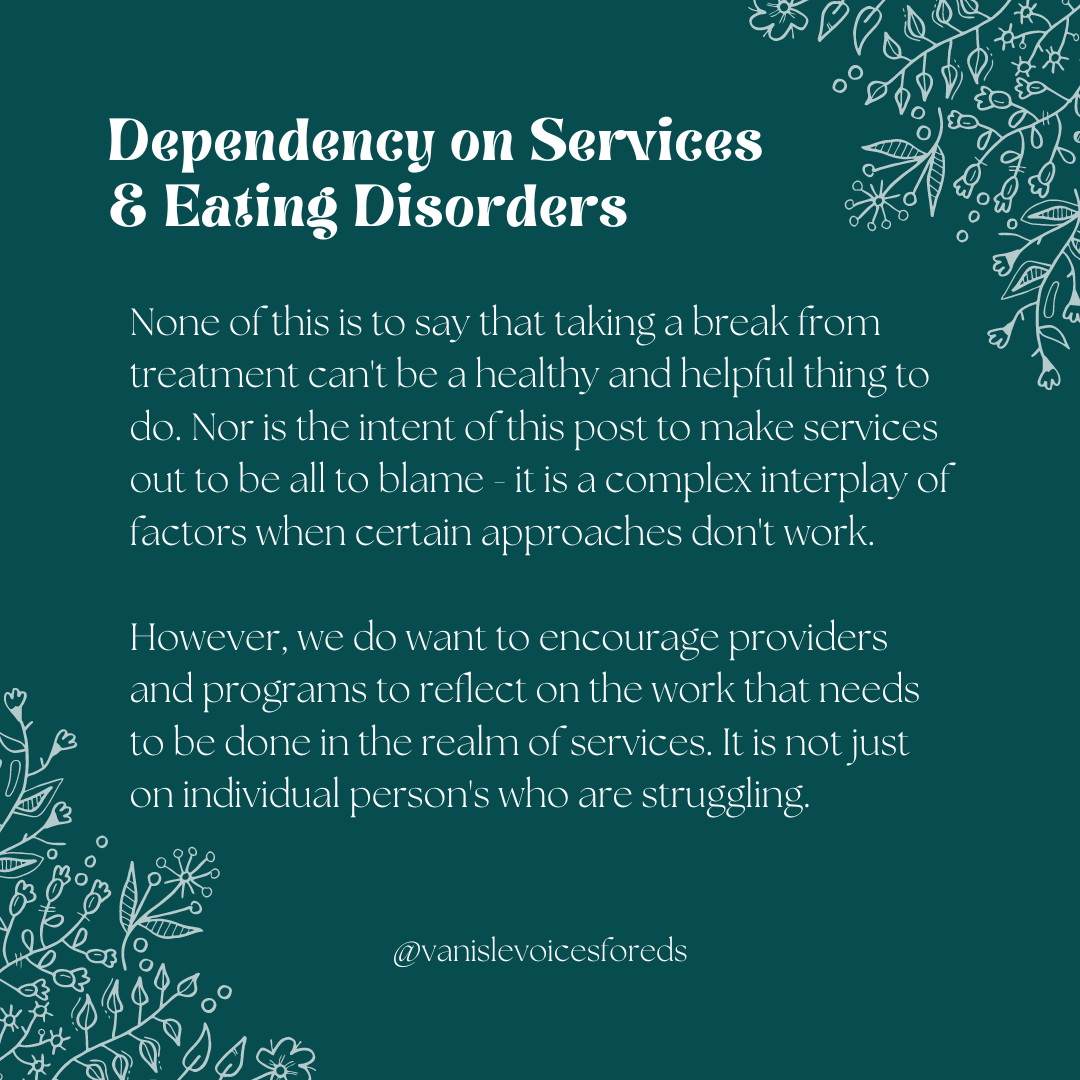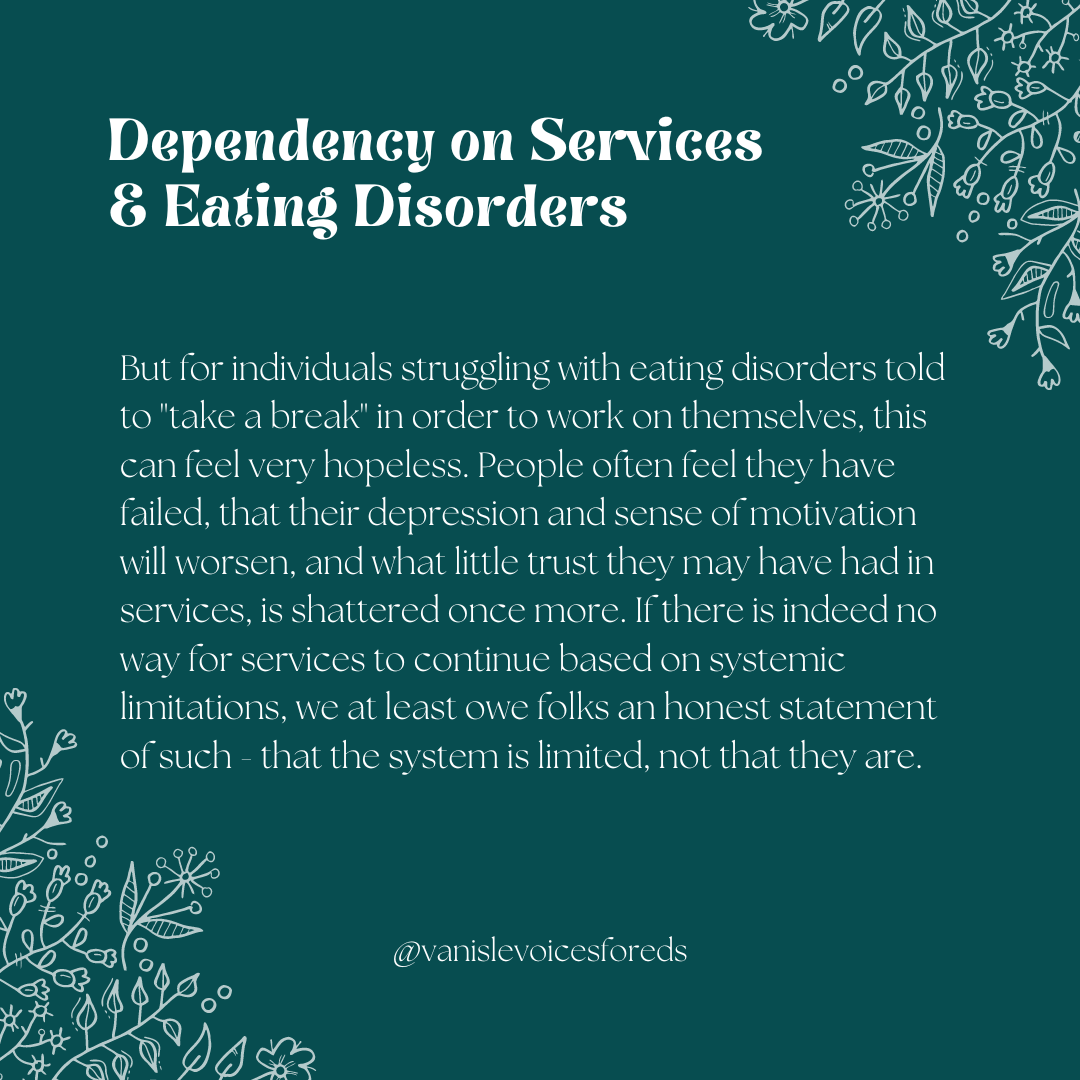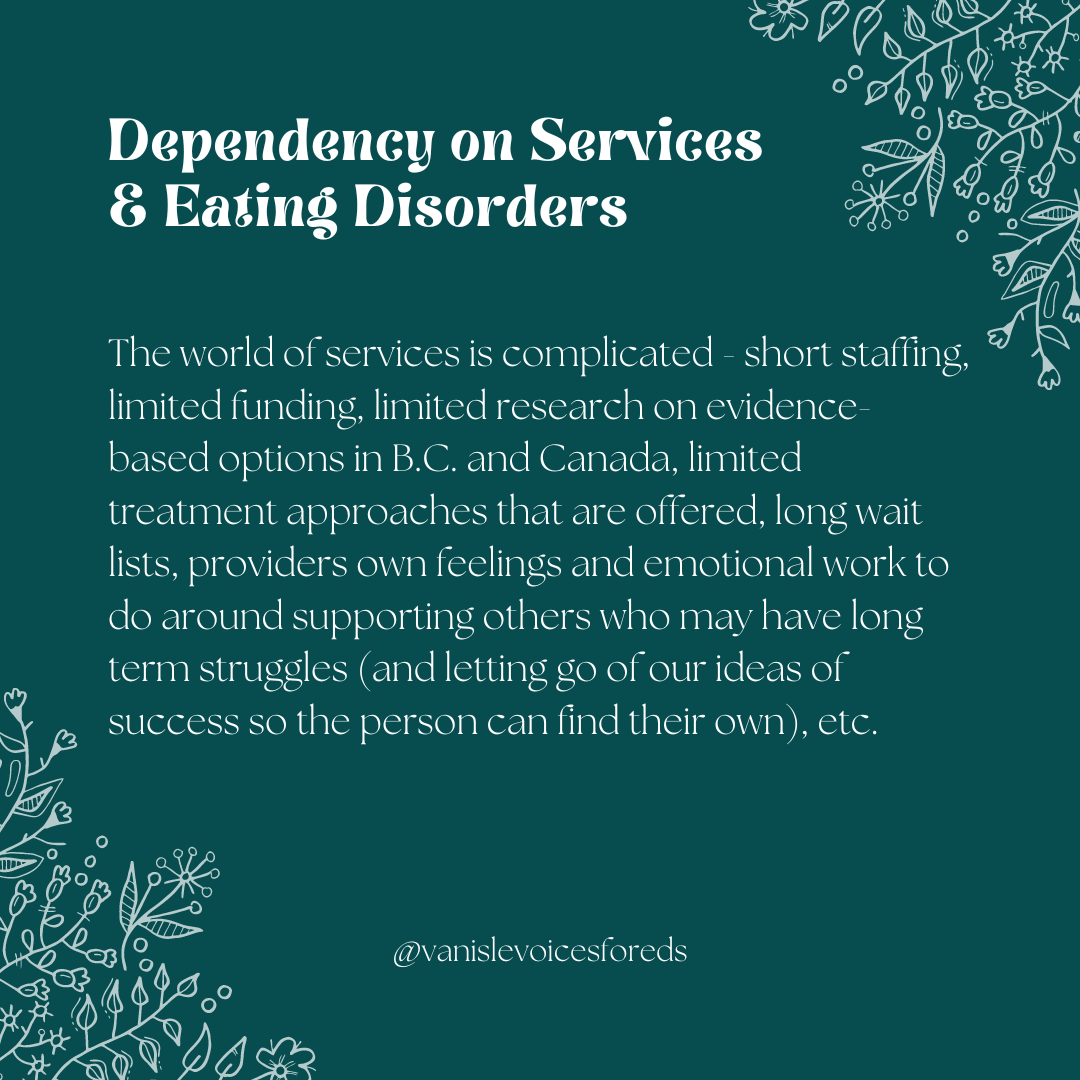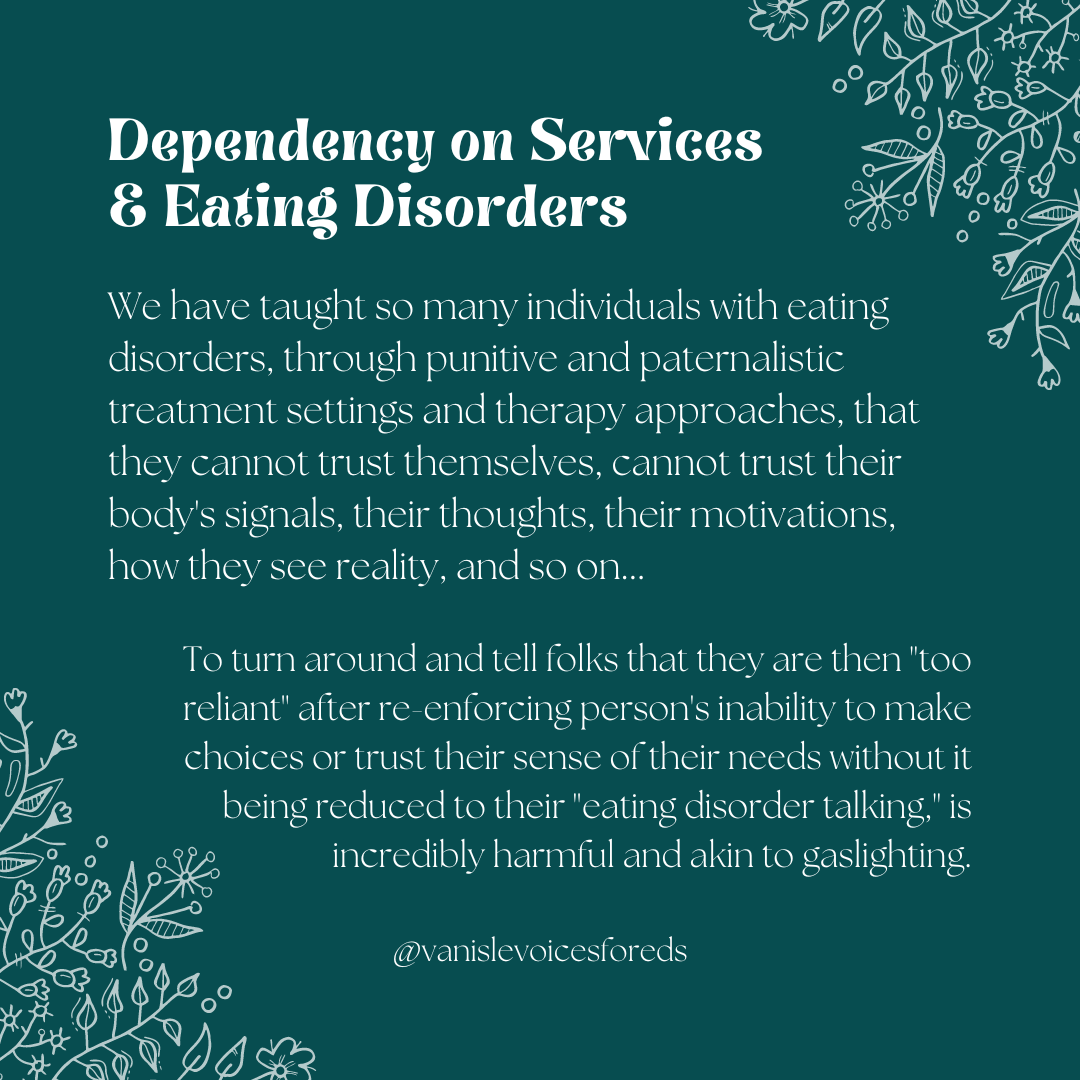Dependency on Treatment & Eating Disorders - An Explorative Discussion
When individuals with eating disorders have cycled through treatment options, it's not uncommon for clinicians to recommend a "break from treatment."
Sometimes stepping away from services can provide the opportunity to explore other areas of life. However, it can also leave people feeling lost, hopeless, and to blame for struggling.
When this recommendation to "return to community" comes up - it raises several questions alongside it...
1. Why is fear of a person becoming "dependent" on services of more concern than exploring why services have not helped in the ways we might hope for them to?
2. Why is the emphasis to be curious about why things aren't working put back on the individual, as work for them to do (without support), versus exploring how treatment may consistently not meet people's needs?
3. How are we defining what "successful treatment" looks like in the absence of a consistently agreed upon definition of "recovery" or "recovered?"
4. To what degree do services include individual's own, unique definitions of healing in their understanding of "successful" treatment?
5. Why is the fear of individual's becoming dependent on services of more concern than supporting people's wellness and keeping them alive? Especially when there is very little in the way of primary care in B.C.
6. What are the myriad of ways in which ingrained punitive and paternalistic treatment approaches have reinforced dependency on external authority figures and unintentionally furthered a sense of disempowerment and incapacity in individuals?
7. How are programs not meeting the needs of multi-marginalized folks?
None of this is to say that taking a break from treatment can't be a healthy and helpful thing to do - it all depends on the individual. Nor is the intent of this post to make services out to be all to blame - it is a complex interplay of factors when certain approaches don't work.
However, we do want to encourage providers and programs to reflect on the work that needs to be done in the realm of services. It is not just on individual person's who are struggling to be curious about why things aren't "working."
The world of services is complicated - short staffing, limited funding, limited research on evidence-based options in B.C. and Canada, limited treatment approaches that are offered, long wait lists, providers own feelings and emotional work to do around supporting others who may have long term struggles (and letting go of our ideas of success so the person can find their own), etc.
But for individuals struggling with eating disorders told to "take a break" in order to work on themselves, this can feel very hopeless. People often feel they have failed, that their depression and sense of motivation will worsen, and what little trust they may have had in services, is shattered once more.
If there is indeed no way for services to continue based on systemic limitations, we at least owe folks an honest statement of such - that the system is limited, not that they are.
We have taught so many individuals with eating disorders, through punitive and paternalistic treatment settings and therapy approaches, that they cannot trust themselves, cannot trust their body's signals, their thoughts, their motivations, how they see reality, and so on...
To turn around and tell folks that they are then "too reliant" after re-enforcing person's inability to make choices or trust their sense of their needs without it being reduced to their "eating disorder talking," is incredibly harmful and akin to gaslighting.
People deserve better and at the end of the day, we all want the same thing - to support ourselves and others towards healing.

